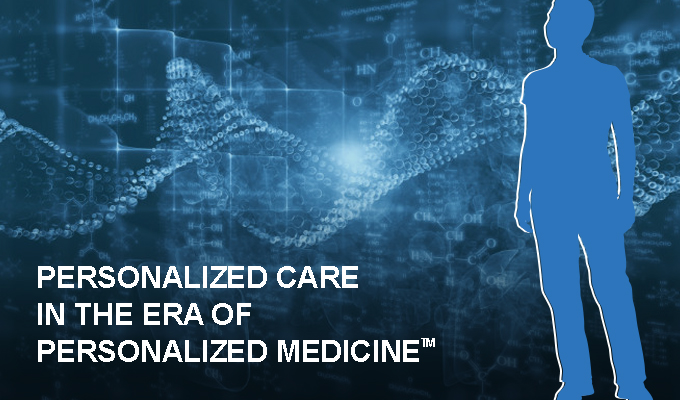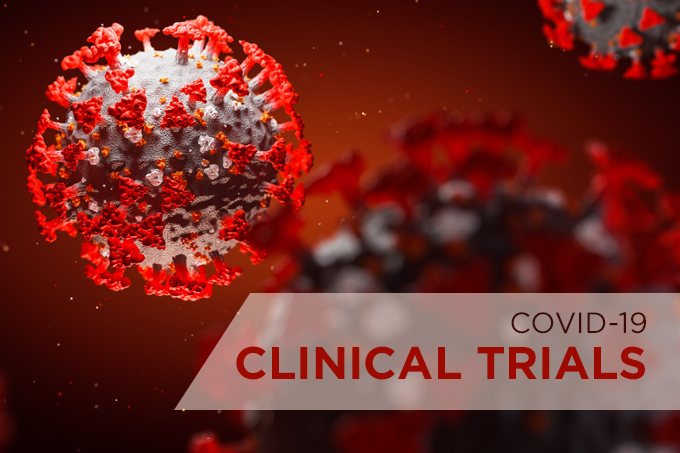

How Medicine Can Precisely Reach Its Destination
by Santosh Kesari
On a pre-pandemic flight from Los Angeles to Boston, I marveled at the ability of a plane to journey from a very specific location in one city to another specific spot thousands of miles away. I stepped in the plane at a particular gate in a particular terminal in a particular airport and stepped out on the other side of the continent in an equally specific spot.

This is the kind of specificity we’re aiming for in cancer treatment. In traditional practice, the tools we have, such as chemotherapy and radiation, often damage healthy cells and tissues in the process. We want to get to the gate, but we affect the whole airport in the process. Or we administer a treatment that works great at Gate 16, but the cancer in this case turns out to be located at Gate 20.
A new approach to treating disease, called personalized medicine, promises to give us the precision we need to identify and reach the right gate, so to speak – to target disease and, eventually, perhaps even prevent illness from developing.
In the future, I believe newborns will have their whole genome sequenced and stored. This will give physicians crucial information about that individual’s risk for developing health conditions ranging from allergies to dementia. It will allow for early intervention and management in the form of screening and monitoring as well as modifications to diet, nutrition and exercise. We will see a proactive environment where genetic information will help physicians determine which medications will work best should you develop a certain disease. All of this will be done in ways specifically fine-tuned to each patient.
Precision Medicine

How will we get to this futuristic scenario? Through precision medicine, which is already here. Also called personalized medicine, this approach looks at the individual characteristics (usually the genetics) of a specific disease or condition to design or use existing drugs that interfere with its ability to function or replicate.
As a neuro-oncologist, I’m excited about precision medicine’s potential for cancer treatment. In fact, the field of cancer research has driven the progress of precision medicine. The mapping of the human genome and subsequent development of technology now allow us to sequence genes more quickly and at less cost than ever. Genetic sequencing gives us a map of sorts telling us the genetic information carried in a particular segment of DNA and RNA.
That has provided an understanding of what the genome looks like and how it changes in cancer; that is, which changes (mutations) in the gene cause disease and what parts of the DNA carry instructions for turning genes on or off. That knowledge, in turn, has enabled us to develop or use existing drugs that target those mutations or on-off switches. So rather than treating everyone with, say, breast cancer the same way, physicians now treat a breast cancer with a certain mutation differently than a breast cancer with another mutation. This targeted therapy zeroes in on tumor cells while minimizing damage to the healthy surrounding cells.

Here at the Pacific Neuroscience Institute in Southern California, we have been participating in studies on several targeted drugs for cancers — including brain cancer — with specific mutations including NTRK mutations, FGFR mutations and many others.
We’re even creating individually personalized vaccines for some of our patients with brain cancer. Again, using genetic sequencing to see which genetic mutations are at play, we decide which of those mutations might be most susceptible to an effective vaccine. We then create that vaccine and administer it to the patient. There are multiple clinical trials happening around the country and abroad using this strategy, and we are participating in some of those as well.
Beyond Cancer Treatment

Two of the vaccines used for COVID-19 relied on the approach of precision medicine. Most vaccines work by inserting a weakened or inactivated pathogen into our bodies to trigger an immune response. In contrast, the vaccines made by Pfizer and Moderna harnessed knowledge about the coronavirus’s genetic code. That knowledge allowed for the development of vaccines which instruct our bodies to produce an antibody that disables the virus. And as new variants are coming up, this same process is being used modify the vaccines for booster doses.
As this example suggests, precision medicine has promise of applying to conditions beyond cancer, including heart disease and diabetes. Using genomic analysis to see genetic, molecular and cellular network interactions will increasingly enable us to focus on causes of these conditions rather than symptoms. And the field of pharmacogenomics, which looks at how the body metabolizes drugs, provides valuable information for choosing appropriate treatments for individuals based on their genetics or other factors.

A groundbreaking approach to medicine called P4 medicine envisions the field becoming predictive, preventive, personalized and participatory. It will harness big data (much of it supplied by our wearable devices) to provide a comprehensive understanding of human biology. Dr. Leroy Hood introduced this paradigm and co-founded The Institute of Systems Biology to explore and promote this approach. Headquartered in Seattle, the Institute is part of the Providence health system to which my center, Pacific Neuroscience Institute, also belongs.
We are on the cusp of a transformation in health and medicine. And we don’t even need to go to the airport to see it take flight.
By DR. SANTOSH KESARI, MD, PhD with NANCY SOKOLER STEINER
About the Author

Santosh Kesari
Santosh Kesari, MD, PhD, is Director of Neuro-oncology at Pacific Neuroscience Institute and Chair and Professor, Department of Translational Neurosciences and Neurotherapeutics, Saint John’s Cancer Institute at Providence Saint John’s Health Center. He is a world leader in the innovative treatment of all types of malignant brain tumors. Dr. Kesari and his team conduct leading-edge clinical trials in immunotherapy and biomarker-based brain tumor therapies.
Last updated: September 29th, 2021